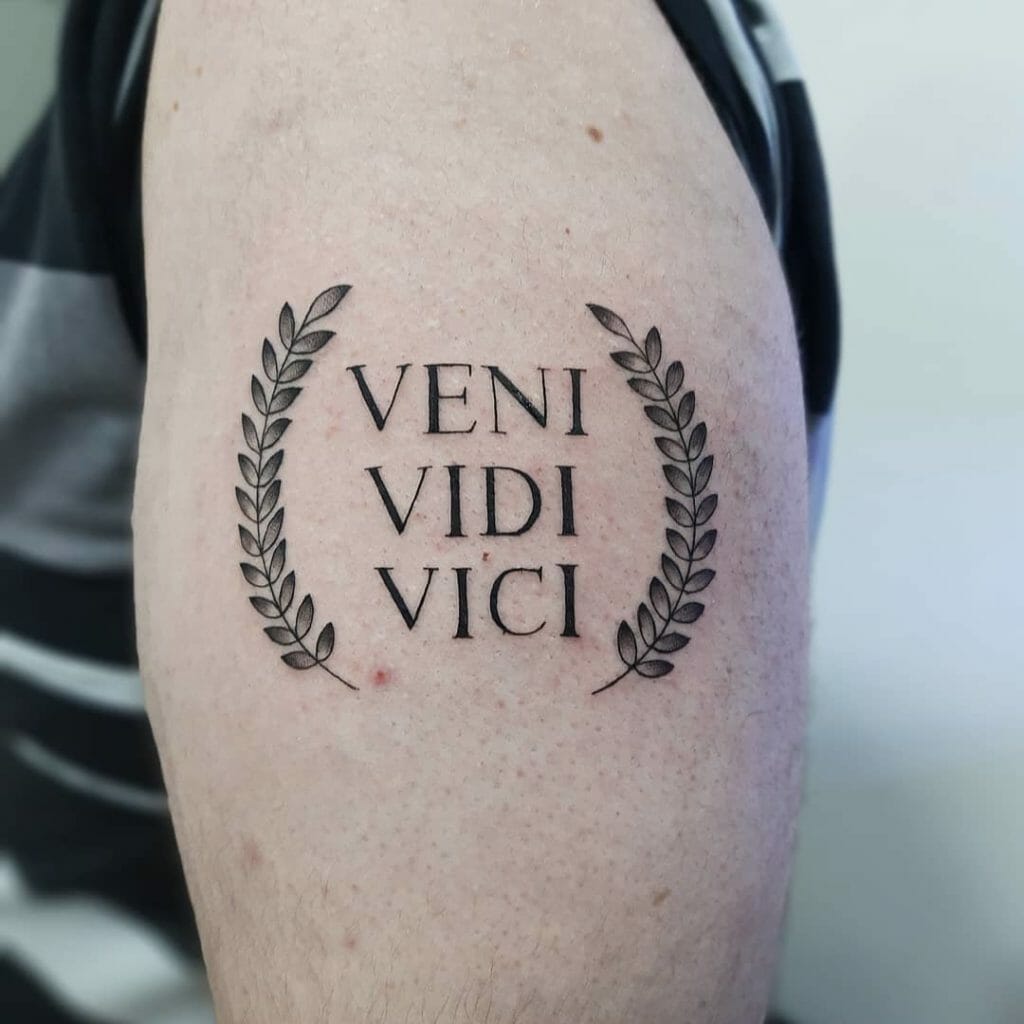

This was after the defeat of the Ptolemaic army in the Battle of the Nile. The story behind the Battle of Zela starts when Caesar left Egypt and was travelling through Syria. In other words, veni, vidi, vici means he came in, took what he wanted and left.

He had just accomplished dominating victory in the Battle of Zela over Pharnaces II of Pontus. He used this phrase when writing a letter to the Roman Senate at around 47 BC and after battle. When Caesar used this phrase, the braggadocios figure of speech shocked and impressed many writers of the time. Veni, vidi, vici is the famous Latin phrase touted by Julius Caesar who was emperor over Rome from 49 BC to 44 BC. We’ll take a look into the origins of this phrase and come to a better understanding of why people like to get the veni, vidi, vici tattoo. A statement that holds this much meaning must have an interesting story behind it. The veni, vidi, vici tattoo speaks volumes about the person wearing this ink. It’s no surprise that you’ll see this phrase tattooed on men and women alike. It translates to, I came, I saw, I conquered. No matter how you relate it to your life is up to you, but having it on your body means one thing: The meaning of Julius Ceasar’s triumph resonates so much to you on a certain level and at some point in your life you are a true victorious warrior.Veni, vidi, vici is a Latin phrase attributed to Julius Caesar. You may use the Veni Vidi Vici tattoo any way you want for whatever reasons. Check out these Pros and Cons of having tattoos. These people are not afraid to go against the norm, to go against the tide and follow what they think is right. People with tattoos are always viewed as artistic or sometimes rebellious so think before you ink. The tattoo itself is thought-provoking, it makes one think about why the person has it on their skin.

The promise of success by being strong and steadfast is what it means for most people and this is the reason why they want the mark on their bodies. But Veni Vidi Vici has long since ceased to just be a military term or just a quote by a famous person about battles, it has become a symbol to most as something that they can look at and think of as a line that shows how confident they are in life and that beyond the bad times ahead they can always count on that they will survive and triumph. This line can now be used by everyone who would like to show that they will weather whatever is happening and will happen to them.īecause a lot of people use the line only for military or political purposes, some people may not easily understand what means to the person who has the tattoo, and some may also disagree on using it entirely based on the fact where it comes from. It is necessarily someone who has an aptitude for war or battle or history and not even someone who is in the military. That they are someone strong (or tries to be) and has the thirst for victory in life in all they do. Today, people use this quote to show everyone their conviction in life. Now a lot of people, even those who remember that this line is from Julius Ceasar forgets all about the battle of Zela, why? There isn’t much to know others who won and how did it happen: He arrived, he saw and he was victorious.


 0 kommentar(er)
0 kommentar(er)
